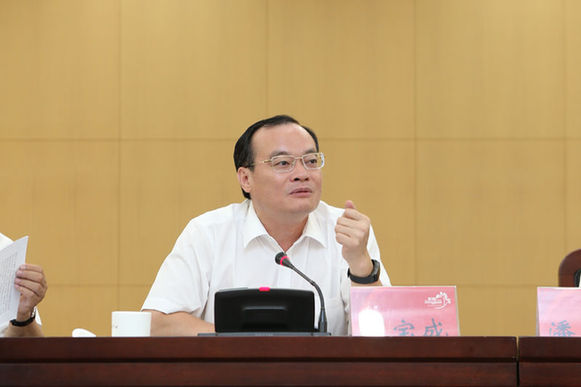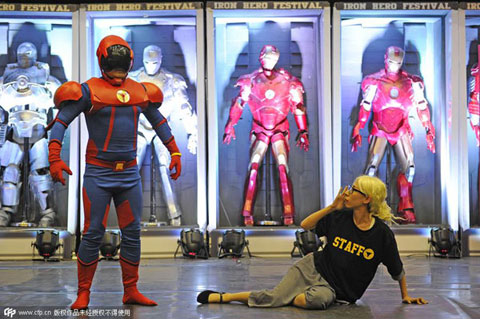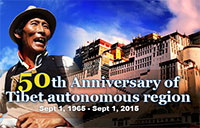'The world's factory' to transform with innovation, Internet
By Zhang Qiong (chinadaily.com.cn) Updated: 2015-07-24 16:41Dongguan, a city known as "the world's factory" in China, seeks to upgrade its manufacturing base via technological innovation and the Internet, according to Mayor Yuan Baocheng.
"The living space for the low value-added manufacturing industry is narrowing down. It won't work to stick to the low price path. Innovation and transformation are inevitable choices," Yuan said.
The manufacturing hub in the Pearl River Delta in Guangdong province had been injecting 1 billion yuan ($161 million) every year between 2006 and 2011, a sum that has doubled during the 12th Five-Year Plan (2011-15), in order to support technological innovation.
Dongguan has so far established 24 innovative-technology research and development institutes and six national-level technological enterprise incubators. By the end of 2014, the city was home to 755 high-tech enterprises, ranking the first among the 19 prefectural-level cities in Guangdong, Yuan underlined.
At the beginning of 2015, the municipal government announced a "Made in Dongguan-2025" action plan to propel transformation of manufacturing sector by 2025 in the areas of scale structure, manufacturing mode, innovation ability, quality benefit and low-carbon.
According to a recent report by Nanfang Daily, the Dongcheng district of the city has started employing robots in such traditional industries as electronics, furniture and food, which consequently triggers benefits including high-efficiency and low energy consumption.
 |
|
Yuan Baocheng, the mayor of Dongguan city in Guangdong province, addresses representatives of domestic Internet media groups, July 23. [Photo provided to China Daily] |
"Dongguan manufacturing will fly much higher and further when it makes the Internet its wings," pointed out the mayor, seeing the city's future in the nation's Internet Plus drive.
Dongguan Mayor Yuan made these remarks on July 23 during a meeting with representatives from domestic Internet media groups, who are on a five-day visit to Guangdong to find out about the province's innovation-driven development efforts.
According to Yuan, the city has seen a rapid growth in electronic commerce. Its e-commerce sales volume in 2014 reached 290 billion yuan and it is expected to grow by 23 percent in 2015. "Four of the top five Internet enterprises, such as Jingdong and Suning, have opened their logistics headquarters in Dongguan. That owes to the charm of Dongguan's manufacturing sector," he added.
"With the power of the Internet, we will export the brand, design and manufacturing capability of Dongguan. That's how Internet will help us redefine and transform the city's current role as the world's factory," said Yuan.
- Recycling project targets industrial waste around Beijing
- Xi congratulates Maldivian president on Independence Day
- One of 100 most-wanted fugitives caught in Macao
- China begins putting together radio telescope
- Millions use homemade map of bullet train lines
- Top Hebei official is suspected of graft
- Official pronouncements supporting young Chinese
- Xi urges youth federations to stay loyal
- Chinese leaders reiterate post-quake reconstruction in Xinjiang
- Deadly flooding hits Fujian province







